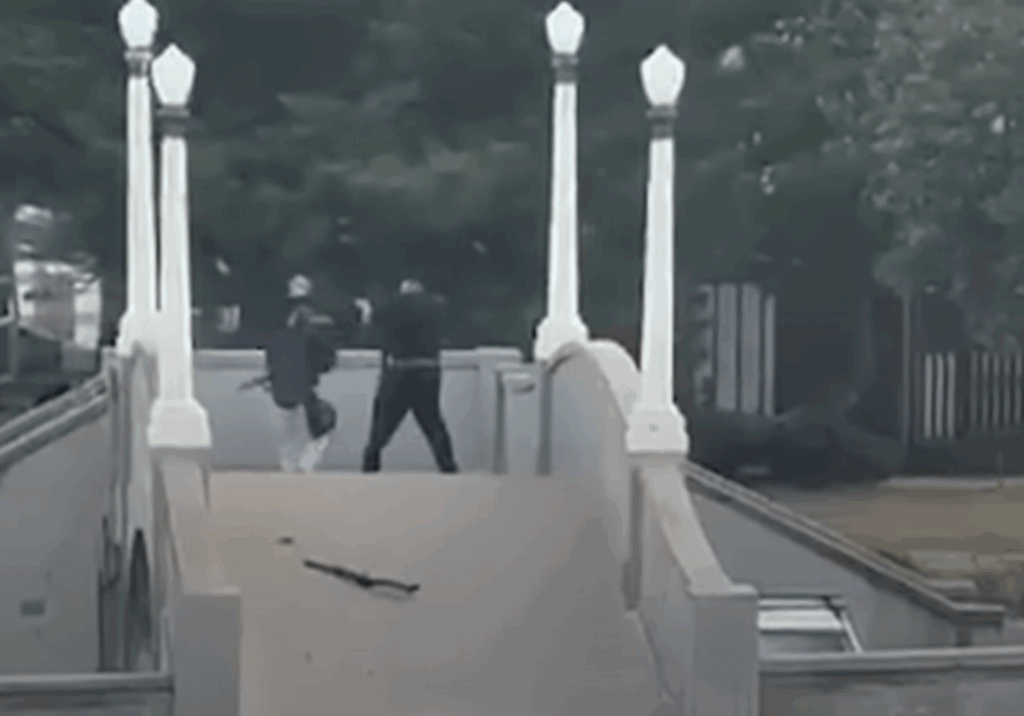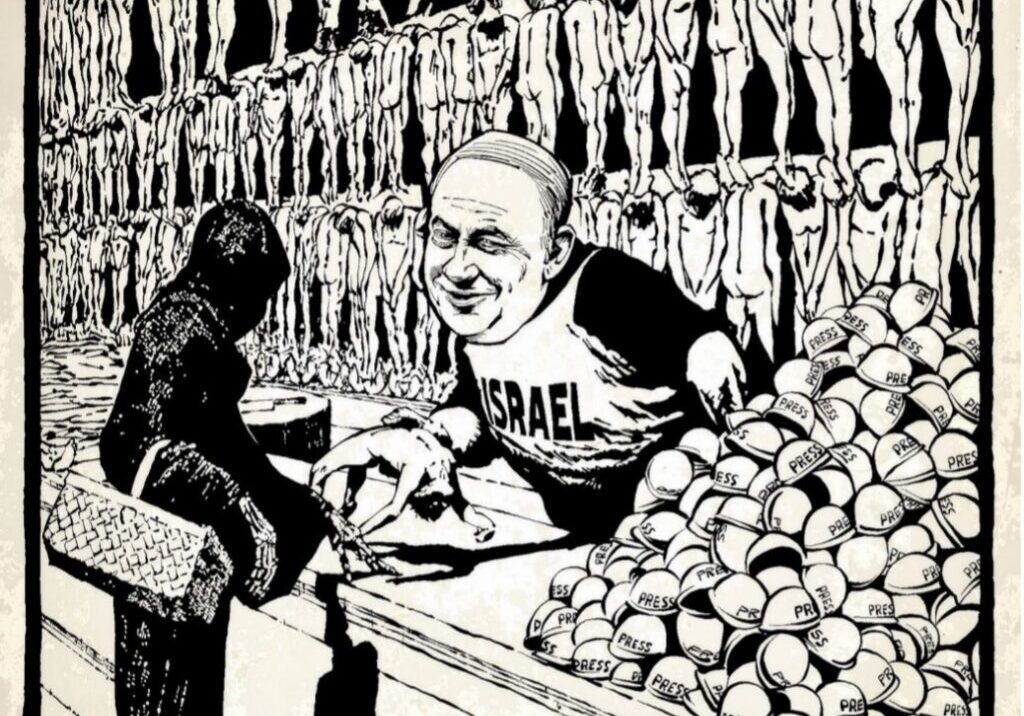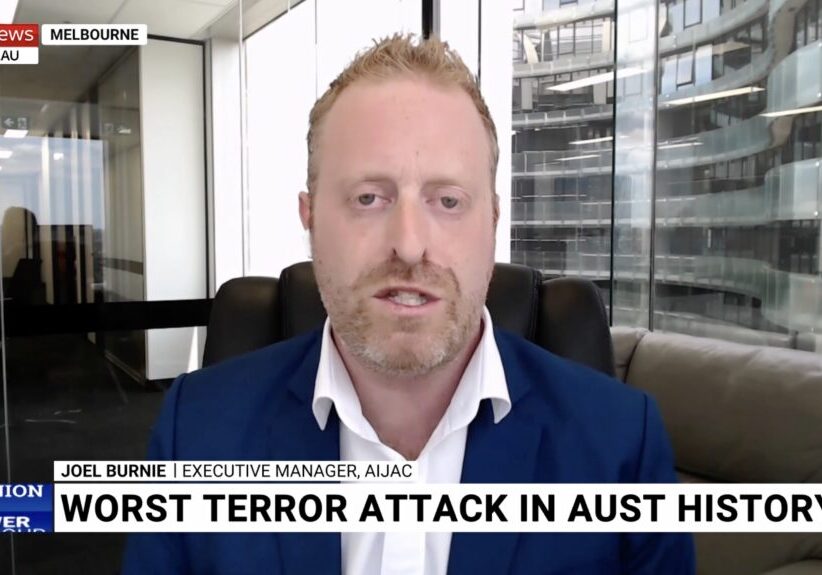Australia/Israel Review
Hamas Participation
Nov 1, 2005 | Yehonathan Tommer
The dilemmas of Palestinian politics
By Yehonathan Tommer
With Palestinian Legislative Assembly elections set for January 20 next year, Israel is mulling over the potential dilemma of a feeble Fatah-ruled Palestinian Authority confronted by a parliament ruled by a militant Hamas majority. There is no tangible sign that Hamas plans to jettison its long-standing objective of destroying the State of Israel. But there is every indication that if armed clashes between Hamas and Palestinian police reoccur, the Palestinian Authority could be dangerously close to collapsing.
Meanwhile, the fragile lull in Palestinian terrorism is likely on the whole to hold out, at least until after the general elections. Israel has little capability to disrupt them. It is possible that Egyptian plans to postpone them to help prop up the beleaguered Palestinian regime could be implemented, with likely American backing, if the Palestinian Authority concludes that results from the third round of municipal elections on December 6 point to a landslide victory for Hamas in the January ballot. If these elections are postponed for a second time since June, Hamas could retaliate by reigniting a full-scale terrorist war that could also cause the demise of the Palestinian Authority.
Paradoxically, the short-term calm Israel gains from reduced Hamas terrorism helps to rehabilitate the organisation’s firm, but dented, Palestinian support. It also allows Hamas to rearm its militias and equip them with an improved ballistic and artillery capability for the next round of West Bank terror.
This is after an angered Gazan population discovered that Hamas had blatantly lied about Israeli responsibility for an incident where a Hamas truck loaded with rockets blew up in Gaza, killing 19 people, on September 23. Furthermore, in “retaliation” for the supposed Israeli “attack” 35 Qassam rockets were fired onto the Israeli Negev town Sderot inviting Israel retaliation which could only risk the lives of more Palestinians.
It is clear that there is no substance to the contention that Hamas is weighing plans to amend its 1988 antisemitic Charter inciting hatred against Jews and calling for Israel’s destruction. “No reformed Hamas seeking reconciliation with Israel is about to be born,” says Reserve Brigadier General Shalom Harari, a Palestinian affairs specialist, former adviser to the Defence Ministry, and now a senior Research Fellow at the Herzilya-based Institute for Counter Terrorism (ICT). The Hamas boss in Nablus, Mohammed Ghazali, a Professor of Civil Engineering at An-Najah University, was recently reprimanded by a Hamas spokesman for allegedly telling a Reuters reporter that Hamas was thinking of amending its Charter.
The internal debate is purely pragmatic, agrees Bir Zeit University political scientist Dr. Ali Jarbawi, who sees a flicker of future change. Meanwhile, Hamas has difficulty explaining tactical zigzags to its militant, younger generation supporters. “A gap will continue to exist between its pragmatic behaviour and its hardline, ideological rhetoric,” according to Dr. Jarbawi.
Hamas leader Mahmoud al-Zahar said in an August 19 interview with Asharq Al-Awsat (carried by the Middle East Media Research Institute): “We will not recognise a state called Israel, Israel has no right to an inch of Palestinian land. Our position stems from our religious convictions.” Rejecting Abu Mazen’s demand for ‘one government, one law and one armed force,’ he said: “We will keep our weapons because no-one can guarantee that the occupation will not resume.”
While Hamas has no intention of disarming its militia and handing over weapons to the Palestinian Authority, it is ready to comply with Abu Mazen’s implied demand to closet them from the public eye, says Jarbawi.
The Hamas party ticket running for parliament excludes all mention to the organisation’s Islamic ideology and obscures it with several Christian candidates, added Harari.
In recent months Hamas (outlawed by the US, the European Union, Australia, Canada and other countries), has been debating whether to make tactical concessions to Palestinian President Mahmoud Abbas (Abu Mazen), said Harari. The troubled, though tightly-disciplined, organisation (compared to the anarchy in Fatah and Islamic Jihad), has recently lost several points with Palestinian supporters.
“Palestinians, and Gazans in particular, are war-weary and demand a respite after the Israeli withdrawal to enjoy the fruits of their new-found freedom,” says Harari. “The month-long Ramadan fast imposes further physical hardships on labourers who must work without drinking water under the hot autumn sun and reinforces their demand for a relative lull. Hamas realises and respects this. But in the West Bank it continues its constant, low-scale shooting attacks and resurrected abductions of Israeli civilians and soldiers. Sporadic for the time-being, these are likely to be stepped up after Ramadan.”
Hamas, which largely fueled the five year armed conflict through its arsenal of young suicide bombers, knows this. “Its top leadership and the Palestinian public realises that Hamas made a string of tactical blunders. The latest was when it was caught red-handed lying about Israel’s responsibility for the death of a terrorist cell when an explosive device being assembled in a residential building exploded in the densely populated Jabaliya refugee camp,” said Harari. Its Gazan constituency, riven by competing terrorist war lords, paid a heavy price for Israel’s tough military retaliation to a barrage of 35 Qassam rockets fired by a Hamas cell onto the Negev town of Sderot, barely two weeks after Israel’s full withdrawal from the area in August. Nor did the Gazan street approve its shoot out with Palestinian police that left several dead and many injured. “Palestinian anger persuaded Hamas to lower its profile and order a unilateral cessation of all rocket fire from Gaza if they don’t want to lose further electoral ground in their Gazan stronghold,” Harari said.
This is supported by a September 7 independent Palestinian poll by Dr. Kahalil Shikaki’s Policy and Survey Research (PSR) Centre. Some 40% of those polled gave Hamas most of the credit for Israel’s withdrawal from Gaza, but 62% said they were opposed to continued attacks against Israelis from Gaza.
“However its core support remains loyal. Hamas may have lost several points for fibbing,” says Harari. “But if its truth telling is now suspect, it still retains an unblemished clean record for not stealing from the public purse and for its military ‘achievements’ in forcing Israel’s Gaza withdrawal. Its public support is slightly tarnished but still very solid.”
Israeli attempts to influence Palestinian party politics are “counterproductive,” says Harari, noting some 207 Hamas senior and middle rank functionaries were arrested by the Israeli security forces ahead of the West Bank municipal elections late September. “Israeli imprisonment strengthens Palestinian empathy and does not prevent the incarcerated being elected through a clandestine voting process inside their penitentiary. Above all, it publicly damages Palestinian President Mahmoud Abbas and the Palestinian Authority by confirming Hamas allegations that he won in undemocratic elections assisted by the Americans and Israelis.”
Israel’s defence minister Shaul Mofaz recently expressed similar reservations cautioning that “it is not a good idea for Israel to physically attempt to disrupt the Palestinian elections.”
Meanwhile, Israel’s Shin Bet Director Yuval Diskin outlined a grim prognosis. Briefing Israeli military correspondents in Tel Aviv recently, he said that the Palestinian Authority “barely functions” and that its efforts to enforce law and order against the terrorist groups are “sporadic, barely effective, and [it is] incapable of telling Hamas what to do.”
Haaretz Palestinian affairs commentator Danny Rubinstein writes “As expected, targeted assassinations and arrests strengthen bitterness against Israel and further harm Abbas’ shaky position. It is widely known that the Palestinian leader fears a Hamas (electoral) victory and spreading West Bank rumours accuse him of conspiring with Sharon for Hamas’ defeat…If the assassinations and arrests continue,” says Rubinstein, “Hamas could increasingly turn to subversive underground activities undermining the hudna [period of quiet] and Abbas’ efforts to encourage it to disarm and become a political party.”
Publicly, Israel rejects Hamas as a Palestinian partner for negotiations and Prime Minister Sharon is waging a diplomatic campaign to exclude it from the elections. Low-key Hamas terror has not ceased for one moment during the entire hudna period of relative calm in which 60 Israelis were murdered, wrote Haaretz military commentator Ze’ev Schiff. The organisation, which has resumed its efforts to abduct Israeli soldiers and civilians, is sharply accused of “doublespeak.” Meanwhile, Israel has adopted a carrot and stick policy pounding Hamas terrorist cells, arms factories and capabilities but coaxing its leadership onto a non-violent path. Prime Minister Ariel Sharon has set stiff, non-negotiable conditions for Hamas participation in the January general elections — dismantlement of its terrorist infrastructure and abolition of its1988 Covenant.
Harari predicts Hamas’ real political strength will emerge on the day after the third and final round of municipal elections on December 6. In the August round Fatah won 53% of the vote against 26% for Hamas. The Islamic list, however, contested only 64 of the104 municipalities of which 57 were largely rural localities. Only 120,000 of an eligible 250,000 voters participated.
Generally, Palestinian surveys should be taken with a large grain of salt, caution Israeli polling experts. They are held in a terrorised society dominated by some 14 different and competing internal security and intelligence organisations. Polling results are based on inadequate control techniques and their results are frequently unreliable, especially in religious sectors of the population who deliberately mislead polling staff to avoid tangling with suspected security agents.
“The December elections will be held in the urban areas of Hebron, Ramallah, Nablus and Gaza city. Their outcome will show whether Hamas has regained its sagging popularity. Meanwhile, celebrating Fatah’s victory is premature,” says Harari.
In any event, the next four months of conflict management by Israel, the Palestinian Authority and Hamas are critical, not only for a continued lull in the killing, but in shaping the domestic Palestinian balance of forces for either revitalised diplomacy or at least to attempt to prevent a blistering descent into renewed violence.
Tags: Islamic Extremism






